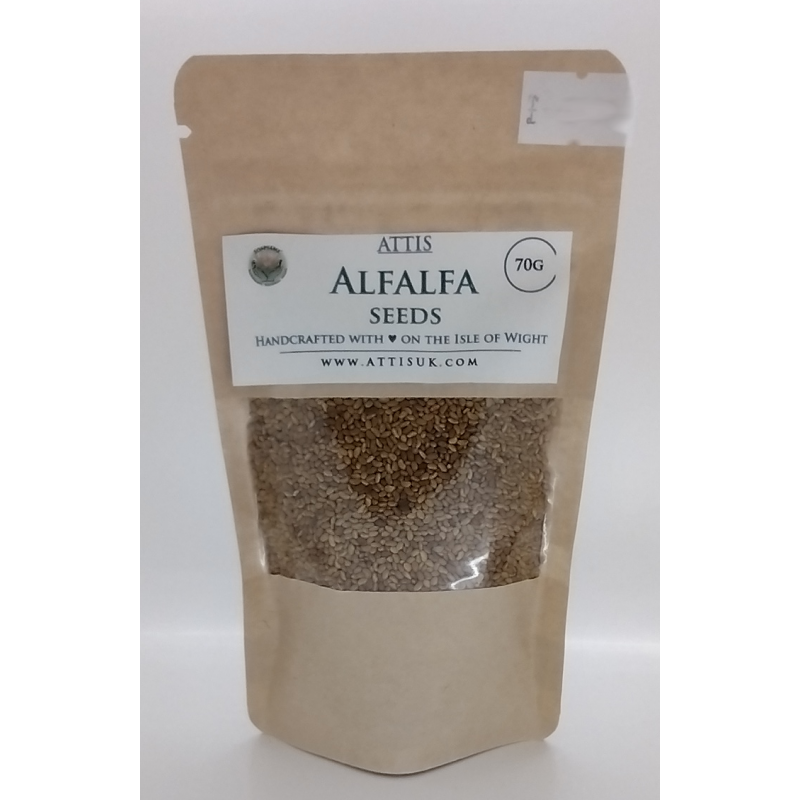



Alfalfa offers a host of health benefits due to its rich nutritional profile. It is packed with essential vitamins such as vitamin C, vitamin K, and various B vitamins, including folate. Alfalfa is also a good source of minerals like calcium, magnesium, and potassium. Moreover, it contains phytochemicals, including flavonoids and saponins, which possess antioxidant properties. These compounds help neutralize harmful free radicals and protect the body against oxidative stress and inflammation. Alfalfa supports digestion and gut health due to its high fibre content. It aids in maintaining a healthy weight, regulating blood sugar levels, and promoting regular bowel movements. Additionally, alfalfa has been linked to potential benefits such as reducing cholesterol levels, improving cardiovascular health, and supporting immune function. Its nutrient density and various health-promoting properties make alfalfa a valuable addition to a balanced diet.
Growing alfalfa seeds at home for sprouts is a straightforward and rewarding process. Here's a step-by-step guide to help you:
1. Start with high-quality alfalfa seeds specifically meant for sprouting. Ensure they are organic and free from any chemical treatments.
2. Take a clean and shallow container, such as a sprouting tray, a wide-mouthed jar, or a sprouting bag. Rinse the container thoroughly with water to ensure cleanliness.
3. Measure about 1-2 tablespoons of alfalfa seeds and place them in the container. Spread them evenly to avoid overcrowding.
4. Fill the container with water, enough to cover the seeds. Let them soak for about 4-6 hours. This process helps hydrate the seeds and kickstart the sprouting process.
5. After soaking, drain the water from the container. Rinse the seeds thoroughly with fresh water to remove any residual impurities.
6. Set up a drainage system for your container, ensuring that excess water can easily flow out. This can be achieved by using a tray with holes, a mesh lid, or a sprouting bag with good drainage.
7. Place the container in a well-ventilated area away from direct sunlight. Avoid exposing the sprouts to extreme temperatures or drafts.
8. Twice a day, rinse the seeds thoroughly with fresh water and drain well. This helps maintain moisture and prevents the growth of harmful bacteria.
9. Repeat the rinsing and draining process for about 5-7 days, or until the sprouts reach the desired length (usually around 1-2 inches). During this time, you will notice the growth of tiny green leaves.
10. Once the sprouts have reached the desired length, give them a final rinse and drain well to remove any excess moisture.
11. Harvest the alfalfa sprouts by gently removing them from the container. Trim off any roots if necessary.
12. Store the harvested sprouts in a clean, airtight container in the refrigerator. They can typically be kept fresh for 3-5 days.
Remember to practice good hygiene throughout the process by washing your hands, using clean utensils, and maintaining a clean growing environment. Enjoy the fresh and nutritious alfalfa sprouts in salads, sandwiches, or as a topping for various dishes.